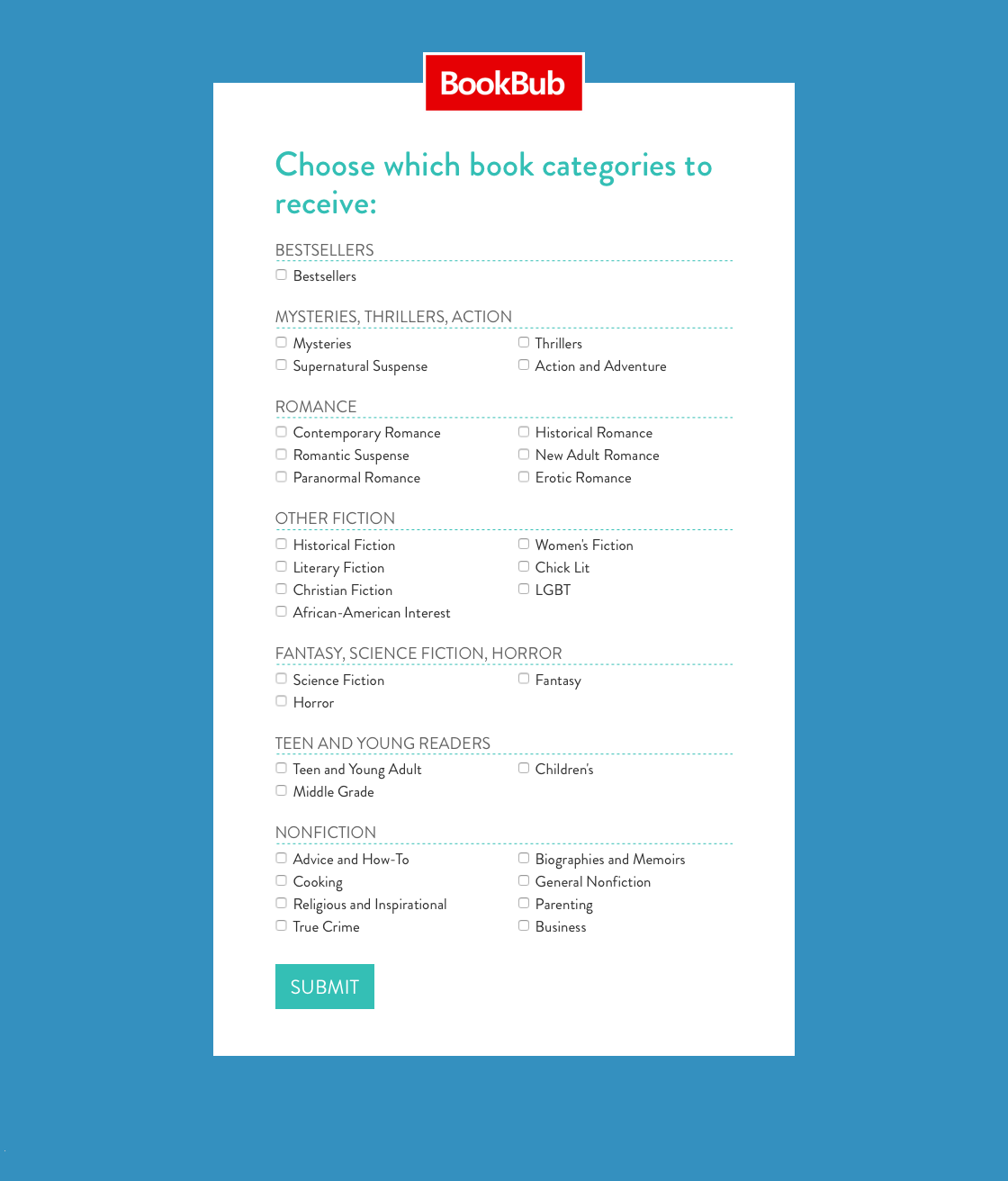
I’m getting spoiled by self-published authors and the services that cater to them. Big publishers are increasingly disappointing in comparison.
One of the most baffling aspects of big publishing is that publishers generally don’t know who their readers are. Other than people they meet at conventions or New York readings, they simply have no idea who’s reading their books, because those people usually buy through an intermediary: the bookstore. Most of publishers’ marketing efforts are therefore geared toward the bookstore buyers, not the individual readers.
In this NPR story on diversity in publishing, one of the things that leaped out at me was a quote from an editor citing a PEW study that revealed that African-American women “are the largest group of readers in the country.” (Which you’d never know from the lack of diversity in protagonists, cover models, and so on.) Why did publishers have to rely on PEW for that data? Because they have very little research into the habits of individual readers. They’ve never needed it; they’ve always done business with chain sales reps.
Self-published authors have found (among other things) that building their mailing lists is one of the most important things they can do for their sales. They’ve also found that linking directly to the booksellers works a lot better than going to some sort of intermediate page. That is, they’re placing links to their other books in their backmatter, and making sure that those are links to Amazon in the Kindle edition, to bn.com in the Nook edition, and so forth. It’s a hassle to maintain different links for every store and format, but it’s worth it, because those direct links sell more books.
I have never seen an ebook from a major publisher that included store-specific links to the author’s backlist. Publishers have IT staff, right? They should be on top of this stuff, right?
Guys. They are so not on top of this stuff, it hurts my heart. And the problems are not all that hard to fix.
Email Marketing
For individual authors, building these mailing lists is pretty straightforward: “Want to know when my next book comes out? Sign up here…”
Publishers, though, have lots of authors in lots of genres (or subgenres). They need segments. Lots of segments. Basically, every publisher should be doing what BookBub is doing with their lists.
BookBub is a stupidly simple, ridiculously successful email marketing service for discounted books. You give them your email address and choose the genres you like. It’s pretty granular:
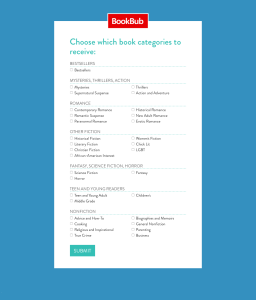 And then you choose which retailers you want to hear about. If you don’t shop on Google Play, you don’t get deals that are available only there.
And then you choose which retailers you want to hear about. If you don’t shop on Google Play, you don’t get deals that are available only there.
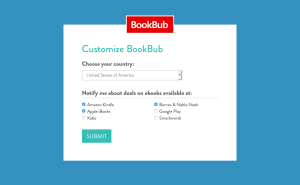 Once you’re done, you get an email every day with books that are discounted in that genre.
Once you’re done, you get an email every day with books that are discounted in that genre.
You can also subscribe to specific authors, and if the author you’re looking for isn’t listed, you can submit their name to start subscribing when they turn up in BookBub’s database.
They have over three million subscribers, as of this writing. In addition to the fees they charge for the author or publisher placing the ad, they’re making affiliate money on every sale (plus, on Amazon, a smaller commission on anything else the reader buys in the next 24 hours).
For an industry that bitches a lot about discoverability, I don’t see nearly enough publishers asking readers what they want to hear about. Simply by giving people an incentive to hand over their email addresses and genre/author preferences, they’d get valuable market data and a way to push new books out to targeted audiences. There’s no reason publishers can’t do this with their new releases as well as their discounts and promotions.
Email marketing probably isn’t going to reach the sort of casual readers who pick up one book every couple of months, but that’s okay. The voracious readers are the ones who start the word of mouth you need to reach the casual readers.
For voracious readers, no amount of anticipation is too much. We will follow upcoming release calendars. We will create upcoming release calendars of our own when none exist. I have a shared Google calendar with two fellow ardent readers, where we share our favorite authors’ release dates as we glean them from Twitter and the authors’ blogs. We shouldn’t have to do this. Those publishers should be telling us when books are coming out! I get more reliable reminders from Goodreads than from most publishers.
We would love to have a way to tell a publisher, “These are my favorite authors. Please tell me when they have new work available.”
And publishers should collect all my favorite authors, or as many as I can remember to list. When Naomi Novik’s Temeraire series launched, wouldn’t Del Rey have been delighted if they had a handy mailing list of people who loved both Patrick O’Brian and Anne McCaffrey? Del Rey doesn’t publish O’Brian, but having a list of his fans nevertheless would have helped them launch a series that has a lot in common with his work.
Let me tell you who I like, and then you tell me when you publish the “next” whoever.
Subgenres and segments
For a publisher that works primarily in one genre, building lots of subgenre mailing list segments would be smart. They could be way more granular than BookBub is. If you have a new fantasy of manners, or a futuristic mystery, or a space opera romance, I want to hear about it.
Tor.com gets halfway there with the monthly Fiction Affliction roundups. These are great lists of everything that’s coming out in various SF subgenres. However, there are no bookstore links, and I can’t subscribe to these posts by email. I know I have a hard time keeping up with Fiction Affliction in the sheer flood of stuff in Tor.com’s RSS feed, and I’m probably not the only one. (Dear Tor.com, I’m picking on you because you’re already miles ahead of everyone else, and you’re so close to this. I love you. Smooches.)
Shout-outs to publishers who are doing very well at this: Open Road Media, Orbit Books, and Sourcebooks.
The only problem is that the emails aren’t segmented; each email contains at least a couple of genres I just don’t care about. Open Road and Sourcebooks do at least sort the books by (sub)genre, which I appreciate. None of them is as precisely tailored as BookBub–although Open Road’s and Sourcebooks’s templates certainly look a lot like BookBub. Which is great: the prices and bookstore links are easy to find.
Speaking of links…
Bookstore links
I’m sure that for some publishers, linking directly to booksellers is a political problem. I really, really wish they’d figure out how to get over it, or at least work around it. Once you’ve told me about a book I want, the last step is to make it easy for me to buy the damned thing.
Dear publishers who run your own online bookstores,
Great! Link there! But give me an incentive to use this store instead of the ones I frequent. Am I going to have to sideload the ebook, or do you offer to email it to my Kindle or sync it to my Dropbox? (Good job, O’Reilly, A Book Apart. I love y’all.)
Are you charging list price, when I could get a discount from Barnes and Noble or Amazon? If your store’s price is higher and it’s more difficult to get the book onto my reader, you have a big problem.
I know, price-matching is a thing, and it discourages you from offering a lower price on your own store than on Amazon or Google Play. Can you get around it by offering a discount to only logged-in members, like Audible does? If not, affiliate links to the major bookstores might be a better choice.
You’ve got to stick the landing. If you rely on me to copy and paste the title into a store’s search box, there’s every chance I’m going to get distracted before I complete the sale.
And, seriously, use those bookstore links in the ebook editions’ lists of older books. Don’t want to change all those files in case a vendor changes its URLs? Create your own evergreen links using redirects on your own domains, and change the redirect destination as needed, in just one place.
To sum up
1. Let me tell you what I want.
2. Email me when you have that thing.
3. Make it easy for me to buy it.
See also
Why All Publishers Can and Should Go Direct-to-Consumer at Digital Book World
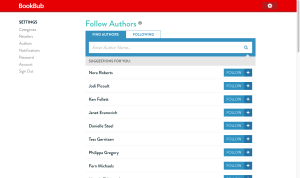
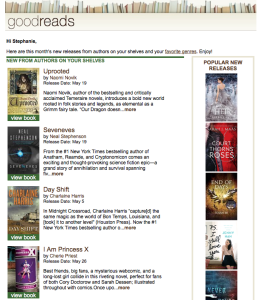
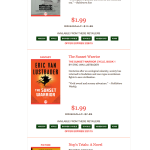
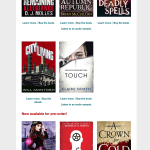
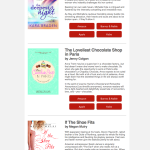
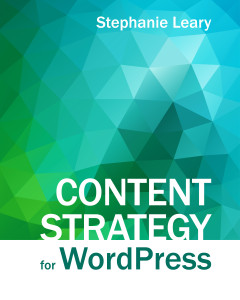
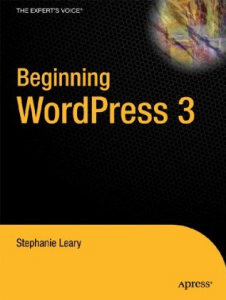
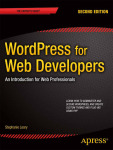

Leave a Reply